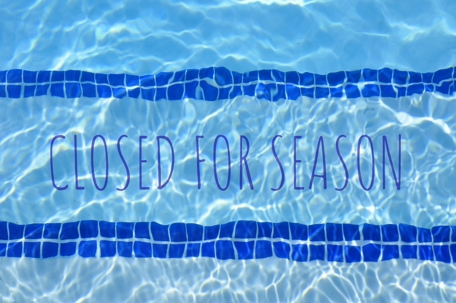When summer waves goodbye, pool owners start thinking about closing their pools for the winter season. While this is a routine practice to keep pools in pristine condition, those with septic systems have some extra considerations to keep in mind. Proper maintenance of both your pool and septic system is crucial to ensure long-term functionality and to protect the environment.
Why Septic Systems Need Special Attention
A septic system is a self-contained, underground wastewater treatment system. They are common in rural areas where centralized sewer systems are not readily available. However, the chemicals used in pools can have adverse effects on these delicate systems, disturbing the natural bacterial balance that helps break down waste. Moreover, excessive water disposal can flood your septic system, causing a potential backup or system failure.
Tip 1: Timing is Everything
When you plan to close your pool, schedule it so that you're not doing laundry, running dishwashers, or engaging in other high-water-usage activities. Septic systems can only handle so much water at once, and adding thousands of gallons from your pool could overwhelm it.
Tip 2: Test and Treat the Water Before Draining
It's essential to ensure that the pool water you're draining into your septic system is as clean and chemical-free as possible. Stop adding chemicals like chlorine or bromine several days before you intend to drain the pool. Use a pool testing kit to make sure chemical levels have neutralized.
Tip 3: Slow and Steady
If you have to drain your pool water into your septic system, do it slowly. Release the water at a rate your septic system can handle. Generally, the system can process around 5 gallons per minute, but it’s best to consult your septic system’s guidelines or talk to a professional for tailored advice.
Tip 4: Consider Alternative Drainage Methods
If possible, consider draining your pool water away from the septic system and your drain field. This is often the best option, provided you can direct the water where it won’t cause erosion or waterlogging. Always ensure you're abiding by local ordinances and not diverting water onto a neighbor’s property without permission.
Tip 5: Perform a Septic System Check-Up
Fall is an excellent time for routine septic maintenance. Have a professional inspect your system for signs of wear, tear, or backup. Since you’re already dealing with one aspect of home maintenance by closing your pool, take the opportunity to make sure your septic system is also in good shape.
Tip 6: Keep Accurate Records
Document the steps you take while closing your pool and maintaining your septic system. Keeping accurate records can help you streamline the process next year and could provide valuable information to professionals should you experience any issues.
Tip 7: Educate and Share Information
It's essential to share this information with anyone who uses your pool or might be involved in the pool's maintenance. The more people are aware of the specific considerations when you have a septic system, the less likely it is that mistakes will happen.
Closing your pool and maintaining your septic system might seem like a daunting task, but with careful planning, it's more than manageable. By understanding how your pool and septic system interact, you can ensure both will last for years to come, all while protecting the surrounding environment.
For further advice and professional assistance on pool closing and septic system maintenance, don't hesitate to contact us at Wind River Environmental.






.2410080654047.png)
